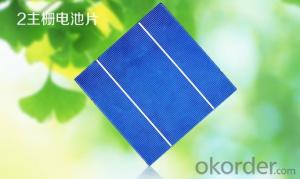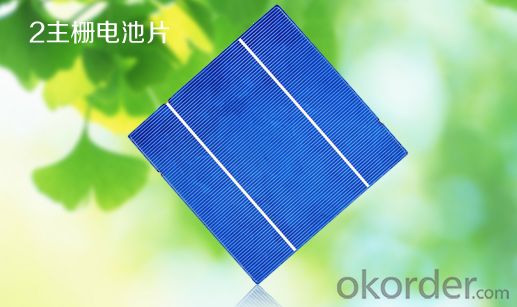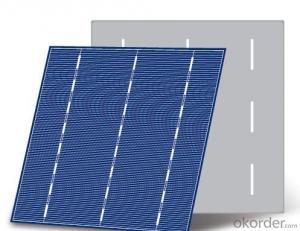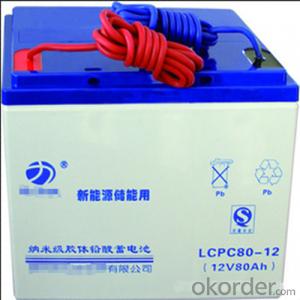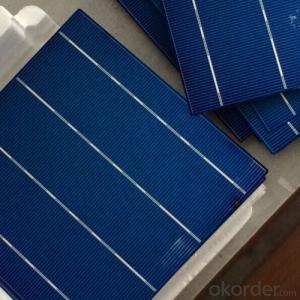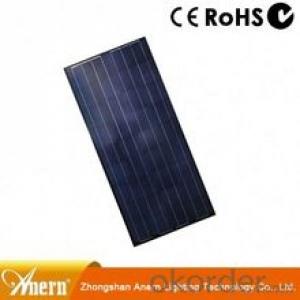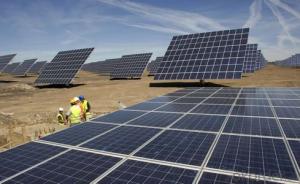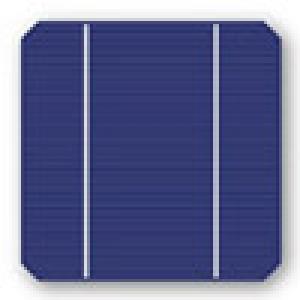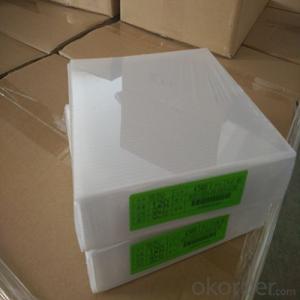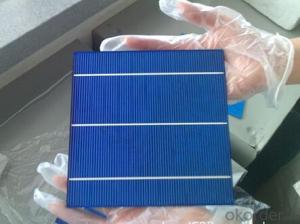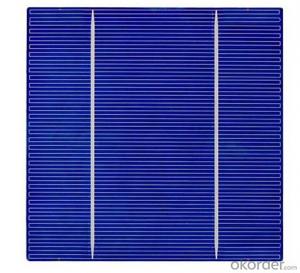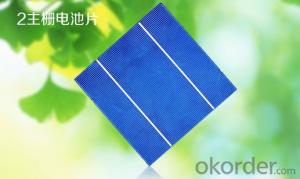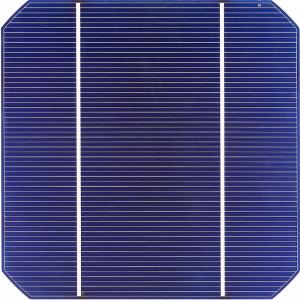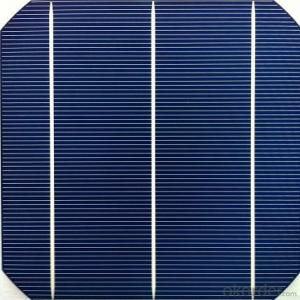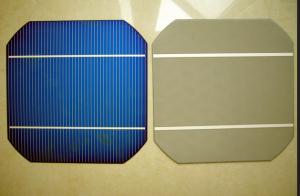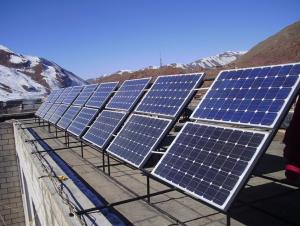Anti Reflective Coating PV Poly 2BB Solar Cells
- Loading Port:
- China Main Port
- Payment Terms:
- TT OR LC
- Min Order Qty:
- -
- Supply Capability:
- -
OKorder Service Pledge
OKorder Financial Service
You Might Also Like
THE CHARACTERISTIC OF 156P POLY-SILICON SOLAR CELLS
1.Format 156mm×156mm±0.5mm,Thickness 210μm±30μm.
2.High efficiency in photovoltaic conversion 16.3%~17.93%;
3.Low inverse current, high shunt resistance and high dependability.
4.Front(-): covered by dark blue silicon nitride anti-reflecting coating(silicon nitride) with bus bars(silver), 2/3/5 bud bars(silver).
5.Back(+): wide soldering pads(silver), back surface field(aluminum),high quality paste for the BSF and the electrode ensure higher tension and improve soldering easiness.
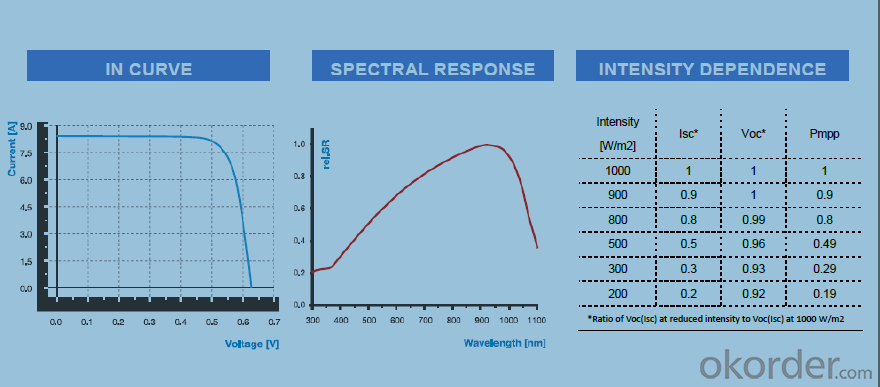
- Q: How do solar cells perform in areas with high levels of humidity?
- Solar cells generally perform slightly less efficiently in areas with high levels of humidity. The moisture in the air can reduce the amount of sunlight reaching the cells and increase the chances of dust and dirt accumulation on the surface, both of which can hinder their performance. However, technological advancements have been made to mitigate these effects, and solar cells can still generate significant electricity even in humid regions.
- Q: How do solar cells perform in areas with high levels of air pollutants?
- Solar cells may experience a decrease in performance in areas with high levels of air pollutants due to reduced sunlight reaching the surface. The presence of pollutants such as smog and particulate matter can block and scatter sunlight, thereby reducing the efficiency of solar cells. Regular cleaning and maintenance of solar panels can help mitigate the impact of air pollutants and ensure optimal performance.
- Q: What is the role of disconnect switches in solar cell systems?
- Disconnect switches in solar cell systems play a crucial role in ensuring the safety and efficient operation of the system. They act as a means of isolating the solar panels from the rest of the system, allowing for maintenance and repairs without the risk of electric shock or damage. Disconnect switches also serve as a protective measure in case of emergencies, enabling rapid shutdown of the entire system to prevent further damage or hazards.
- Q: Can solar cells be used in combination with batteries?
- Yes, solar cells can be used in combination with batteries. The electricity generated by solar cells during the day can be stored in batteries for later use, allowing for a continuous supply of power even when the sun is not shining or during power outages. This combination is commonly used in solar energy systems to enhance their reliability and provide a sustainable source of electricity.
- Q: Can solar cells be used in medical devices?
- Yes, solar cells can be used in medical devices. They can be utilized to power various medical devices such as portable ultrasound machines, defibrillators, blood glucose monitors, and even wearable devices like pacemakers. Solar cells provide a reliable and sustainable source of energy, enabling medical devices to function efficiently in remote or resource-limited areas where access to electricity may be limited.
- Q: Can solar cells be used in industrial applications?
- Yes, solar cells can be used in industrial applications. They are increasingly being utilized in industries such as manufacturing, agriculture, and transportation to generate clean and sustainable energy. Solar cells are capable of powering large-scale operations, reducing reliance on traditional energy sources, and helping businesses reduce their carbon footprint.
- Q: Can solar cells be installed on curved surfaces?
- Yes, solar cells can be installed on curved surfaces. Flexible solar panels are designed to be bendable and can conform to curved surfaces, making them suitable for a variety of applications such as solar-powered vehicles, curved rooftops, and even wearable technology.
- Q: Does solar cell cost less than the other power generation technology?
- Yes, it cost much less than the traditional power generation technology.
- Q: Can solar cells be used for powering agricultural equipment?
- Yes, solar cells can be used for powering agricultural equipment. Solar energy can be harnessed through photovoltaic (PV) panels and used to power various agricultural machinery and equipment such as pumps, irrigation systems, electric fences, and machinery used for crop processing. This provides a sustainable and environmentally friendly alternative to traditional fuel-based power sources, reducing operating costs and minimizing carbon emissions in the agricultural sector.
- Q: What is the right way to operate a solar cell?
- To operate a solar cell system, the staff needs to have solid solar cell knowledge and operational experience.
Send your message to us
Anti Reflective Coating PV Poly 2BB Solar Cells
- Loading Port:
- China Main Port
- Payment Terms:
- TT OR LC
- Min Order Qty:
- -
- Supply Capability:
- -
OKorder Service Pledge
OKorder Financial Service
Similar products
Hot products
Hot Searches
Related keywords
